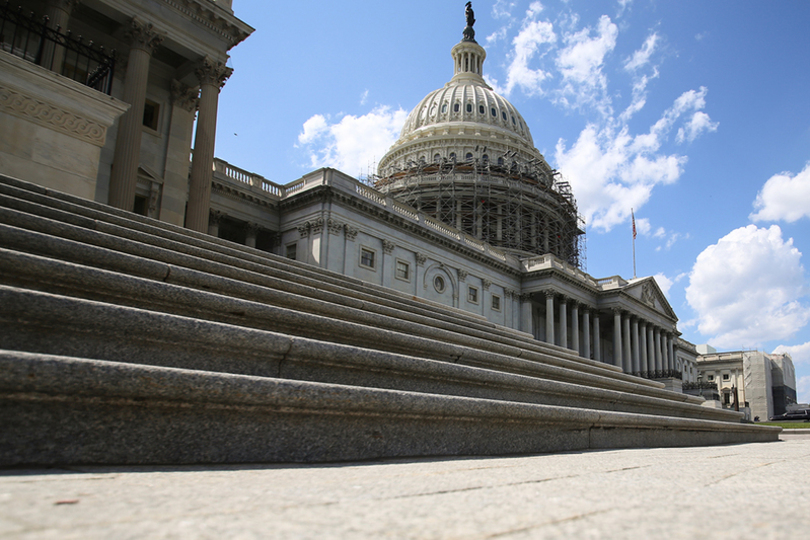Tax overhaul bill passed without several contentious provisions that would have affected Syracuse University

Moriah Ratner | Staff Photographer
The final version of the massive tax overhaul bill was passed by the House of Representatives on Wednesday.
Several controversial tax provisions that would have affected Syracuse University students and employees were officially eliminated from the Republican Party’s final version of a sprawling tax overhaul bill, which passed on Wednesday.
Those proposed provisions included the elimination of graduate student tuition waivers, employer-provided tuition benefits and tax-exempt private activity bonds, among other things.
Chancellor Kent Syverud, in an email to the campus community on Wednesday, said a team of SU officials worked to fight certain provisions in the tax plan. That team included Mike Haynie, vice chancellor for strategic initiatives and innovation.
Here’s a breakdown of the final tax plan passed by Congress on Wednesday:
Graduate student tuition waivers
Initially, the House of Representatives’ tax bill included a provision that would have eliminated universities’ ability to waive or discount tuition for graduate students. The original House bill, which would have considered the tuition waivers as taxable income, could have dramatically increased the cost of college attendance for some students.
That provision was not included in the final tax bill.

Hieu Nguyen | Asst. Photo Editor
Student loan interest deductions
The final bill does not eliminate a provision that allows borrowers to deduct up to $2,500 in student loan interest annually. About 12 million people used the deduction in 2015, according to the Internal Revenue Service. Undergraduate students at SU had an average of $27,000 in federal loan debt after graduation in 2016, according to the College Scorecard.
Premium seating
A provision tucked into the final tax legislation will still eliminate an 80 percent tax deduction available to sports fans for “seat-license fees,” though, according to The Chronicle of Higher Education. In a letter to Rep. John Katko (R-N.Y.) earlier this year, Syverud expressed concern about this provision.
“(The) fact remains that funds generated by such payments play a significant role with regard to supporting investments in athletic infrastructure, scholarships, and student programs,” Syverud wrote.
Endowment excise tax
Only one of SU’s peer institutions will be affected by the 1.4 percent excise tax on major college endowments’ investment income included in the bill. The University of Notre Dame would be hit with the tax. The tax only affects institutions with at least 500 students and assets valued at $500,000 or more per full-time student.
Several of SU’s other peers would have been hit with the excise tax under the legislation initially proposed by the House. SU is not affected by the excise tax.
Employer-provided tuition benefits
Tax-exempt tuition benefits available to college employees’ dependents or spouses were initially threatened in the House’s first tax bill. The benefits were not considered taxable income in the final version of the plan, though.

Brandon Bielinski | Staff Photographer
Private activity bonds
The final version of the tax bill does not eliminate tax-exempt private activity bonds, which are available to nonprofit organizations and typically used to finance infrastructure projects. Sarah Scalese, associate vice president for university communications, acknowledged in early December that the university was exploring tax-exempt bonds as possible funding options for major campus projects including renovations to the Carrier Dome.




